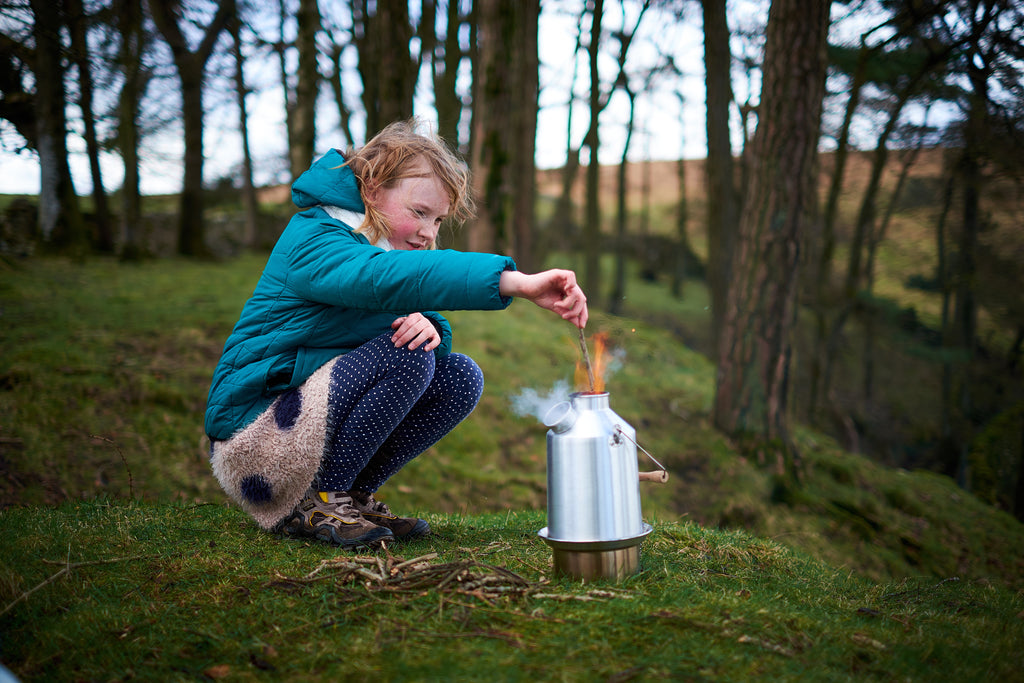
A few weeks ago, just as our Easter holiday camps were starting, it suddenly began to snow. We had a fun week planned - we were getting ready to welcome the Last of The Warriors, building fires, whittling peashooters, designing headdresses, learning to track through the forest and making medicinal salves - but we were a bit concerned about how our warrior tribes would handle the freezing cold.
We needn’t have worried. The children impressed us all with their resilience, positivity and focus on completing the mission! They made the most of the big camp fire, reminded each other to wear their gloves and coats, and embraced the mission so completely that they forgot about the cold!
It got us thinking about how resilience is a key skill at the Hive. Here’s a bit more information about what resilience is, why it matters, and how we nurture it.
Resilience is “the ability to thrive despite challenges”. New skills, new experiences, new social situations - these are all challenges that children have to face. Individual children might have particular challenges to deal with, such as shyness or a learning difficulty.
And let’s not forget that the last 18 months have brought another, unique challenge: the global pandemic. Just like adults, children have been anxious, isolated and in lockdown. That means their ability to thrive in adversity is more important than ever.
The good news is that resilience isn’t some innate quality. It’s not a question of being born with or without resilience. Anyone can learn to be more resilient.
Teaching children resilience brings a lot of advantages. As well as coping with difficult situations, resilient children are also good at knowing their own limits and taking intelligent risks. They are empowered to seek out new adventures and succeed in them.
These skills are important in school and life. As children get older, we expect them to take more responsibility for their decisions and try new things. Children who have a foundation of resilience will be ready for that responsibility.
So how can we build children’s resilience?
A few years ago, Kenneth Ginsburg, a paediatrician at the Children’s Hospital of Philadelphia and expert on resilience , wrote the bestselling Building Resilience in Children and Teens. Now used widely in education, his book focuses on the 7 Cs of resilience:
Most of these building blocks are integral to Hive missions. Children work in groups, giving them the opportunity build a small community, to connect and help each other. They have a set schedule with daily goals, which is empowering and helps them feel in control. Every single one of them brings their own individual contribution to the success of the mission.
Most importantly of all, we encourage them to share ideas and learn by doing. Trial and error is a big part of how we teach skills at the Hive, and it’s also great for children’s competence, persistence. By gently stretching them, we build their confidence.
We can also encourage resilience through our facilitation strategies. For example, instead of telling children what to do, we try to ask questions that guide them towards the answer. We encourage them to aim high, make mistakes and talk about where things went wrong. Then they feel confident and prepared to try again.
Peter Hyman, a teacher and educational thought leader, has talked about the importance of “telling stories” about resilience. Children are very sensitive to the clues we give them about the world, and they use that information to build a story about what kind of person they are and how much they can achieve.
That idea of storytelling runs through everything we do at the Hive.
Over the course of each mission, children follow a storyline that guides them through learning new skills, applying their knowledge and solving problems. With our strategy of asking questions and letting the children make mistakes, the children also develop their own story of how they tried, failed, tried again… and succeeded.
They become the heroes of their own story. And even when the mission is over, they’ll remember that story next time they face a difficult challenge.







Comments (0)